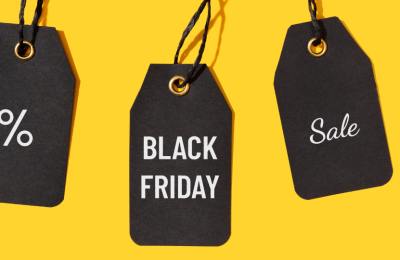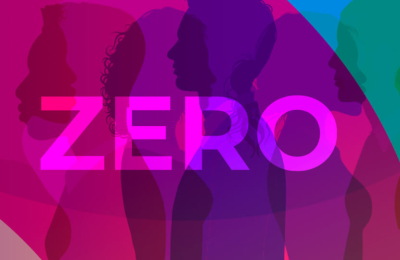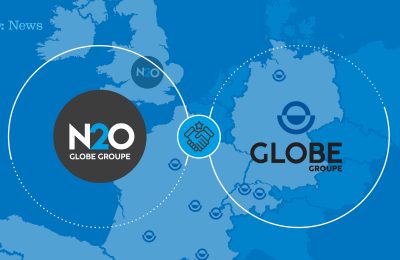Adam Larter, Strategy Director at Studio Black Tomato, explores a possible internet without advertising and what this could mean for brands.
Can the internet be governed? Or do we have to fundamentally change how it works?
I hold an opinion that the internet would benefit greatly from having all advertising removed.
It feels weird to think about that. After all, it’s the internet we have known since its inception – but parallel discussions happen in printed media all the time. The Evening Standard, Timeout, and other such free publications were very different before they were free. Because the conversation is not just – do you want advertising? The conversation is what is the advertising? Where is the advertising and does the advertising affect the editorial?
It is fair to say the internet is a beautiful, glorious, unpredictable mess and a benefit to humanity, but it being a place where the lines between public and private are blurred is not a good thing. The events following the Cambridge Analytica fall-out drew a lot of attention toward the misuse of data and how advertising works on the internet. As targeted advertising becomes more advanced, as fake news grows, as the role of the influencer continues to change, this scrutiny and debate is something that will only continue.
Personally, I look for ways to hide from advertising and paid content – I read the news on the BBC, I use ad-blockers, I turn off all data on social media sites, I look to use VPNs and Mozilla to limit the data being collected and therefore limit the targeting coming my way. I also enjoy paid music streaming (with Deezer) and paid video streaming (Netflix) so that I avoid advertising there. But even then, the internet is impossibly linked to marketing. The videos my friends share, the articles my parents read, that cat’s Instagram account; they are all part of an ecosystem that is held up by advertising. Wikipedia, Reddit, Bitcoin – all these beacons of a radical free-speech internet are just life-rafts floating on an ocean of paid content, advertising and tracking pixels.
BUT IS IT POSSIBLE TO HAVE AN INTERNET WITHOUT ADVERTISING?
The sliding doors moment of the internet is arguably Ethan Zuckerman’s creation of the pop-up banner in 1994. This marks the point where internet advertising became an easy-to-use and viable model which has developed and evolved since then – from pop-up banners to programmatic advertising, to PPC and affiliate advertising.
The creation of an advertising reliant internet is well covered in the Reply All episode “We Know What You Did”
The alternate reality we can imagine without Zuckerman’s pop-up is the world wide web being accessed in a pay-per-use model – this world means that the payment goes straight from the user to the content provider and it means that there is no need for advertising revenue.
Critics of this argue that this model decreases the “randomness” of the internet. If there is a paywall in this way, small and inventive businesses would have not been able to exist and therefore, no Facebook, no Amazon, no dancing hamsters.
Advertising in all its different shapes and forms allows anyone to have a website and anyone to use the internet. It is an egalitarian approach with the occasional pop-up ad being all the price is to pay.
But the internet has changed dramatically.
Ads don’t just pop up on a site, they follow you everywhere. Advertising and content are now interchangeable. What has been paid for by a brand and what has been created independently can sometimes be difficult to tell apart.
YouTube, Search engines, Maps, reviews… Everywhere is a revenue opportunity – which sounds like a cynical hyperbole – but Grumpy Cat had a net worth of $100 million. In contrast, Wikipedia, the Guardian, and many other news sites are continuously asking for donations.
It seems that keeping free speech alive on the internet is a costly business. Think about the cost alone of being on the first page of search results on Google. What was once an egalitarian system where the most searched for brands rose in the rankings, is now purely about those who invest the most.
THE CUTE CAT THEORY
This theory also comes from Zuckerman and states that people will follow the lowest common denominator on the internet. If intellectual content becomes hard to reach, oppressed, ruined, attacked, people won’t kick up much of a fuss and will simply look elsewhere (or maybe even just offline). If people’s ability to share a cute-cat is affected then things will change.
By this (very sound logic) social media will lead the biggest change in the direction of the internet.
Social Media is at a point of flux. YouTube are trying to push people toward a paid model and are increasing their advertising, Facebook are under scrutiny for how they use data and advertising. As for Spotify, Twitter, Pinterest, they all seem unlikely they will continue in the same way in the coming years.
A PROPOSAL FOR A PAID INTERNET
Imagine Netflix introduced a social networking site, so that alongside the streaming you are paying for you have messaging, networking, file sharing without any kind of advertising. Netflix wouldn’t want to advertise to you, as you place a value in them not advertising in the first place. This is what you are paying for. There would potentially be more impartiality and less tracking, because this is less important in a world where cookies don’t follow you everywhere.
This is just as possible as a state-paid for model. Imagine the UK government add on an internet license to our TV license tomorrow. This would mean free social media and free video streaming sites. Put simply, it would become a BBC-style YouTube without any of the ads, like what they already do for radio. Only this streaming site would be for short videos of cats.
However, this is the Leviathan of the internet – a large body that governs content, that is paid for, that creates international rules, independent rules and allows social media to be a clean and clear system. While this seems to be “restricted” this actually is closer to the utopia that many envisaged the internet would be.
Some would say – how is this egalitarian if it is so tightly managed and controlled? But I would argue that’s not what we have now, with so many brands vying for attention, following you around the internet, buying and selling your data and designing the internet towards e commerce then you are being constantly in a state of manipulation and with the internet being all encompassing (IOT / Roaming data) then that has very dangerous implications.
If this is controlled – then that means a whole chunk of your work and home life is suddenly a safer, more enriching experience.
This means all music and video is without advertising. All news without advertising. All social media without advertising. Messaging, file sharing. No more advertising.
It’s entirely possible – but it also starts to create the internet as a country and a governing body of its own – arguably more powerful than the UN.
Could this be a good thing? Is that the birth of absolute democracy? Is it the birth of true freedom of speech?
The argument against this would be the same argument about any state-run media – it’s never going to be fair. It’s going to have to cater for the many and won’t allow in minority points of view. But at least this model has a more visible governance, it has an intention to be impartial – rather than an intention to sell. And I personally think that’s a good thing.






















